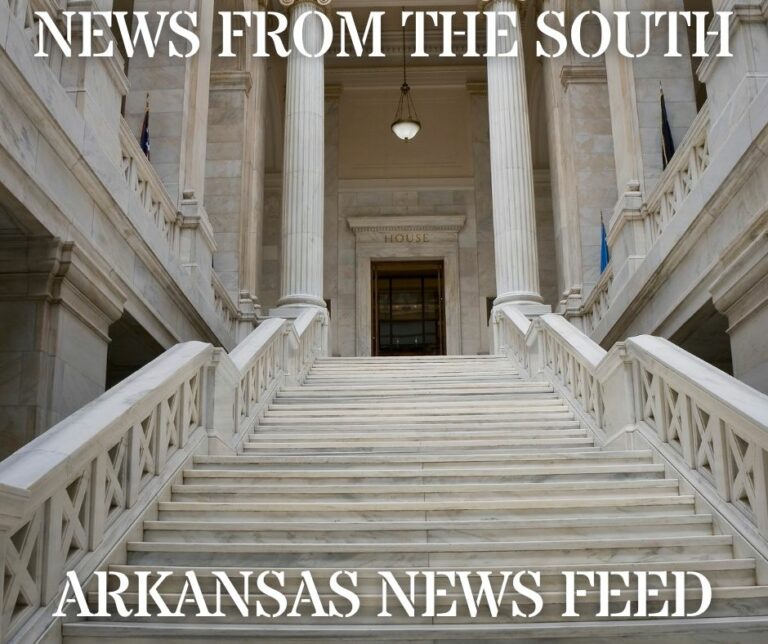News from the South - Georgia News Feed
Wagener residents hoping for change as town council names new fire chief
SUMMARY: Wagener, South Carolina, has named Hendrik Swanepoel as the new permanent fire chief after nearly losing its entire volunteer fire department last November when former Chief Tillman Rushton and 19 firefighters resigned. This mass resignation led Aiken County Council to terminate its contract with the town, and Wagener’s city council voted to separate from the county fire department. Neighboring departments have provided temporary aid, but residents remain concerned about timely fire response. Mayor Mike Miller expressed optimism about progress, while Swanepoel is actively recruiting new staff to restore the department. Locals emphasize the need for dependable, transparent leadership focused on community safety.
Read the full article
The post Wagener residents hoping for change as town council names new fire chief appeared first on www.wjbf.com
News from the South - Georgia News Feed
Four GOP states send nearly 1,000 National Guard to D.C. for Trump crackdown
by Ariana Figueroa, Georgia Recorder
August 18, 2025
WASHINGTON — Four Republican governors are sending nearly 1,000 National Guard members to the District of Columbia after President Donald Trump last week activated 800 members from the district’s Guard as part of his federal takeover of the nation’s capital.
The deployment would bring the total number of National Guard troops to roughly 1,800 in the district’s 68 square miles, following the president’s “crime emergency” declaration, even though violent crime in the district is at a 30-year low.
Because the district, home to more than 700,000 residents, is not a state, the president has the sole authority over its National Guard members.
The president has not only activated the National Guard but through the district’s Home Rule Act is using the Metropolitan Police Department’s 3,400-member police force for immigration enforcement.
The 1,000 National Guard members sent from the states are expected to arrive in the district Monday and through the coming days and are expected to be armed, according to The Wall Street Journal.
Ohio Gov. Mike DeWine will send 150 military police from his state’s National Guard; Mississippi Gov. Tate Reeves will send 200 members; South Carolina Gov. Henry McMaster approved 200 members; and West Virginia Gov. Patrick Morrisey will send up to 400 National Guard members.
McMaster and Morrisey added that the federal government would cover the cost of deploying state troops.
Unknown how long Guard will stay
It’s unclear how long National Guard members will remain on duty in the district. National Guard members are usually deployed for natural disasters and kept in reserve. Most have civilian jobs and families that they are pulled away from when they are activated.
The Department of Defense did not respond to States Newsroom’s request for comment.
The president has 23 days left in his emergency declaration and has signaled he wants to extend the emergency longer, as well as request funding from Congress to finance his plans for the district. He’s directed federal law enforcement officers to not only conduct local policing, but to clear out camps of homeless people.
It’s not the first time Republican governors have signaled they will deploy their National Guard members at Trump’s request. Iowa’s Kim Reynolds has stated she will send troops to help with the Trump administration’s mass deportation plans.
And last week Tennessee Republican Gov. Bill Lee said he’s prepared to send his National Guard members to the district. He added that U.S. Army Secretary Daniel Driscoll told him that the military might request states to send troops to the district for law enforcement.
The Posse Comitatus Act of 1878 generally bars the use of the military for domestic law enforcement purposes.
Lee’s office did not respond to States Newsroom’s request for comment.
Vermont Gov. Phil Scott, a Republican, declined a request from the Trump administration to send the state’s National Guard to the district, according to Vermont Public.
DeWine, McMaster and Morrisey said the Pentagon made requests for additional National Guard members.
What other states might see deployments?
States Newsroom reached out to the offices of all 27 Republican governors to ask if the Trump administration had requested National Guard members.
The administration has not made any requests to Georgia, South Dakota and Virginia, according to spokespeople at those offices. Maryland, which borders the district and is led by Democratic Gov. Wes Moore, has not received a request from the Pentagon to send in National Guard members, according to a spokesperson for Moore’s office.
A spokesperson for Oklahoma Gov. Kevin Stitt said there are no current plans for a deployment of National Guard troops from the state.
Laura Strimple, communications director for Republican Gov. Jim Pillen of Nebraska, said in a statement that the governor supported the president’s “initiatives to reduce crime and clean up the streets in our nation’s capital, including placing the Metropolitan Police Department under federal leadership and tasking the District of Columbia National Guard and National Guard troops from several nearby states with security in Washington.”
“At this time, the Nebraska National Guard is not part of this mission,” she added.
A spokesperson for Florida Republican Gov. Ron DeSantis did not directly answer States Newsroom’s question if the state, which is preparing for Category 4 Hurricane Erin, had received a request from the Trump administration to send National Guard members to the district.
“We stand ready to mobilize any resources necessary in response to President Trump’s federal priorities,” the spokesperson said.
The rest of the state offices did not respond to States Newsroom’s requests for comment.
Georgia Recorder is part of States Newsroom, a nonprofit news network supported by grants and a coalition of donors as a 501c(3) public charity. Georgia Recorder maintains editorial independence. Contact Editor Jill Nolin for questions: info@georgiarecorder.com.
The post Four GOP states send nearly 1,000 National Guard to D.C. for Trump crackdown appeared first on georgiarecorder.com
Note: The following A.I. based commentary is not part of the original article, reproduced above, but is offered in the hopes that it will promote greater media literacy and critical thinking, by making any potential bias more visible to the reader –Staff Editor.
Political Bias Rating: Center-Right
This content presents a factual report on the deployment of National Guard members to Washington, D.C., largely focusing on actions taken by Republican governors and the Trump administration. While it highlights concerns such as the low crime rate despite the emergency declaration and mentions legal constraints like the Posse Comitatus Act, the tone remains mostly neutral with some subtle skepticism toward the federal takeover. The emphasis on Republican leadership and federal enforcement initiatives, combined with limited critical commentary, suggests a center-right leaning perspective. It neither strongly criticizes nor fully endorses the actions described, maintaining a primarily informative stance.
News from the South - Georgia News Feed
Crocker case: Attorneys debate evidence to be presented at trial
SUMMARY: Motion hearings continued in Effingham County for Elwyn Crocker Sr., accused of abusing and murdering his children, Mary and Elwyn Jr., whose bodies were found buried behind the family’s Guyton home in 2018. Prosecutors seek to use electronic devices from the home, citing evidence of abuse, disturbing searches, and incriminating texts. The defense argues ownership and access are unclear. Testimony revealed photos of Mary showing starvation and messages between Crocker and his wife discussing her condition. Motions also debated whether jurors should decide the death penalty, with expert testimony questioning jury reliability. Judge Matthew Hube will rule later.
The post Crocker case: Attorneys debate evidence to be presented at trial appeared first on www.wsav.com
News from the South - Georgia News Feed
LGBTQ-friendly resources, policies recede on Georgia’s college campuses as DEI rollbacks continue
by Amber Roldan, Georgia Recorder
August 18, 2025
Canceled pride graduation celebrations. Eliminated resource centers for LGBTQ students. Tighter rules for using a preferred name on class rosters and student IDs. These are some of the casualties on Georgia college campuses as a national push to erase DEI initiatives and programs takes hold.
University System of Georgia schools across the state have adopted a variety of changes in response to a flurry of federal orders from the Trump administration. Republican state lawmakers have also pursued a ban on DEI programs and policies in Georgia’s public schools and universities.
Georgia Southern was one of the first universities in the state to roll back DEI initiatives according to Chanel Haley, deputy director with Georgia Equality, which advocates on behalf of LGBTQ Georgians. Concerned students reached out to Haley after the school cancelled graduation ceremonies that previously celebrated the achievements of LGBTQ+ students.
“I think that people need to realize it’s harm for everybody, not just LGBTQ students,” Haley said about DEI rollbacks.
In Atlanta, Georgia Tech dissolved their LGBTQIA+ Resource Center, Women’s Resource Center and Black Culture, Innovation and Technology team and moved them under the university’s Arts, Belonging and Community Department.
“Every university had a DEI office, and now we don’t, that’s a 180 degree turn,” said Matthew Boedy, who is president of the Georgia chapter of the American Association of University Professors.
‘A place they can go’
With a student population over 45,000, Kennesaw State University is one of the larger public universities in the metro Atlanta area. Located towards the north end of Cobb County, KSU’s wider community has earned a progressive reputation in recent years. New policies at KSU have inspired a wave of opposition on and off campus as the community continues to express disappointment.
Some of the changes have affected programs and policies that once benefited LGBTQ+ students.
Ames West, a KSU senior, grew up in an evangelical household where being a part of the LGBTQ+ community was considered a “grave sin.” At KSU, West became a familiar face at the LGBTQ+ resource center and befriended numerous peers who shared similar stories.
Last spring, KSU internally announced that the center would no longer cater specifically to LGBTQ+ students and would be rebranded as a part of a new Department of Student Engagement and Support.
“This shift includes reorganizing various student programs into targeted support hubs focused on key areas like career readiness, academic success, mentorship, and well-being. KSU remains committed to student success, transparency throughout the transition, and full compliance with federal, state, and University System of Georgia guidelines,” KSU’s assistant vice president of communications, Tammy DeMel, said.
As someone who visited the resource center up to three times a week, West worried about friends and students who would no longer have a place to be themselves. Fueled by fear, West helped mobilize the Kennesaw Pride Alliance, a support network for LGBTQ+ KSU students, to look for solutions.
“I just couldn’t sit back and do nothing,” West said.
“We don’t care how much it costs, we don’t care how much it takes, we’re going to make sure our community on campus has a place they can go that has the support they need so that they do not feel left alone or like no one’s there to help them,” West added.
After spending the better part of their summer searching for a LGBTQ+ friendly space on campus, the alliance opened the doors to their new Kennesaw Pride Center in late July.
The new location is on the top floor of Kennesaw’s First United Lutheran Church, and the alliance hopes the student-run community hub and pride center becomes an inclusive spot for KSU’s LGBTQ+ community.
Decorated with colorful flags, posters and an assortment of thrifted furniture, the center is ready to welcome students back to campus this fall. While the center will serve as a refuge to visitors in between classes, the alliance also plans to use the space to host social events including their annual pride gala.
Preferred name changes
Evelyn Priddy, a transgender sophomore studying computer engineering, expects to be directly affected by a new preferred name policy at KSU.
The change stems from a University System of Georgia policy. According to the USG Business Procedures Manual, the policy aims “to respect individuals’ preferred names while providing consistent identity management standards and reducing the risk of fraud by impersonation.”
USG notified institution presidents of the change last November and policy enforcement began July 1. Critics worry that the change has the potential of outing transgender students who no longer use their government-recognized names.
Some transgender people refer to the names they were assigned at birth as “dead names.” For many, being referred to by a dead name can be hurtful or bring back painful memories.
In previous years, KSU students hoping to go by a different name could submit a request to use a preferred name. Once approved, this name replaced the legal name associated with student registration. While official transcripts and degrees would still use the legal name, the policy allowed preferred names to display on student IDs and class rosters.
Policy enforcement will now require a student’s preferred name to be placed in parentheses next to their legal name on all identifying documents.
“My legal name is going to be on every roster because I can’t file the forms to change it fast,” Priddy said. “I mean at this point I’m just gonna have to explain it. I hope I’ll be okay, but also, you could see how that could be a bit of a safety risk.”
For transgender students like Priddy who were given a name at birth that they no longer identify with, pursuing a legal name change is one of the only options.
A legal name change process in Georgia is often a time-consuming ordeal. From paperwork to notary requirements and legal publishing policies, a name change can take weeks and become a costly feat. In Cobb County, notices must be published in the county’s local newspaper to notify community members that a petition to change a legal name has been filed. These notices must be published once every four weeks to meet the legal requirement.
In an effort to assist students directly affected by the new policy, The Southern Legal Center for Youth partnered with student organizations to host a virtual name change clinic to help students seeking a legal name change start the process.
Liz Harding Chao, the center’s founder and president created the organization after noticing a lack of local legal representation for youth in the South. As a LGBTQ+-led organization, the group noticed an increased need for legal assistance with name changes and offered support to KSU students.
“For a lot of trans and gender-expansive folks, their dead name has a lot of baggage associated with it. It’s from a time that they often rather not remember or think about it,” Harding Chao said.
Clinic clients represent themselves but law students and attorneys from the center help clients fill out the appropriate paperwork. The center also helps interested applicants fill out a poverty affidavit to combat any financial barriers.
Last week, KSU’s virtual clinic served seven students and accumulated a wait list with an additional 10. While the clinic helped students start the process of officially registering their preferred name, the legal change will not be completed before the first day of classes.
GET THE MORNING HEADLINES.
Georgia Recorder is part of States Newsroom, a nonprofit news network supported by grants and a coalition of donors as a 501c(3) public charity. Georgia Recorder maintains editorial independence. Contact Editor Jill Nolin for questions: info@georgiarecorder.com.
The post LGBTQ-friendly resources, policies recede on Georgia’s college campuses as DEI rollbacks continue appeared first on georgiarecorder.com
Note: The following A.I. based commentary is not part of the original article, reproduced above, but is offered in the hopes that it will promote greater media literacy and critical thinking, by making any potential bias more visible to the reader –Staff Editor.
Political Bias Rating: Center-Left
This content highlights the impacts of conservative policies on Diversity, Equity, and Inclusion (DEI) initiatives, particularly those affecting LGBTQ+ students in Georgia’s public universities. It presents the rollback of such programs negatively, emphasizing the harm and challenges faced by marginalized communities, while also showcasing efforts to support these groups. The language and perspective lean toward progressive values that advocate for LGBTQ+ rights and maintaining DEI initiatives, reflecting a center-left political viewpoint.
-
News from the South - Texas News Feed3 days ago
Kratom poisoning calls climb in Texas
-
News from the South - Tennessee News Feed4 days ago
GRAPHIC VIDEO WARNING: Man shot several times at point-blank range outside Memphis convenience store
-
News from the South - Texas News Feed1 day ago
New Texas laws go into effect as school year starts
-
News from the South - Florida News Feed1 day ago
Floridians lose tens of millions to romance scams
-
News from the South - Kentucky News Feed4 days ago
Unsealed warrant reveals IRS claims of millions in unreported sales at Central Kentucky restaurants
-
Our Mississippi Home6 days ago
Pride of Mississippi Marching Band to Kick Off Season with Free Concert
-
News from the South - Arkansas News Feed6 days ago
Idaho is losing OB-GYNs. Doctors who remain are trying to shoulder the extra burdens.
-
News from the South - Georgia News Feed7 days ago
Dragon Bravo fire grows to one of the largest | FOX 5 News












































